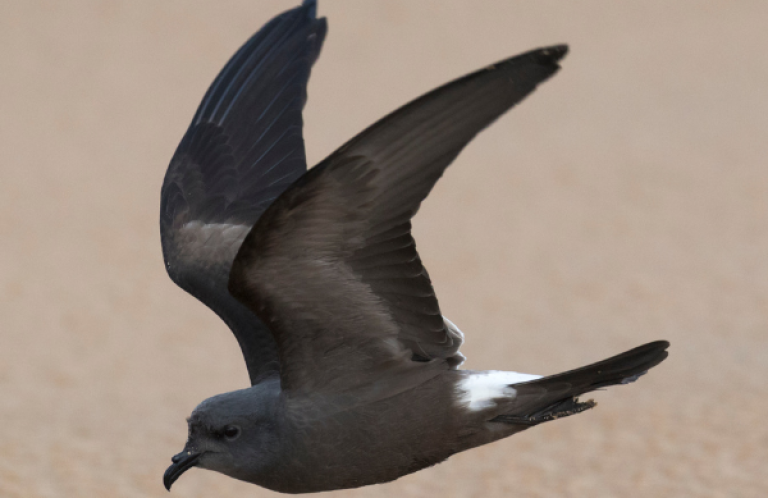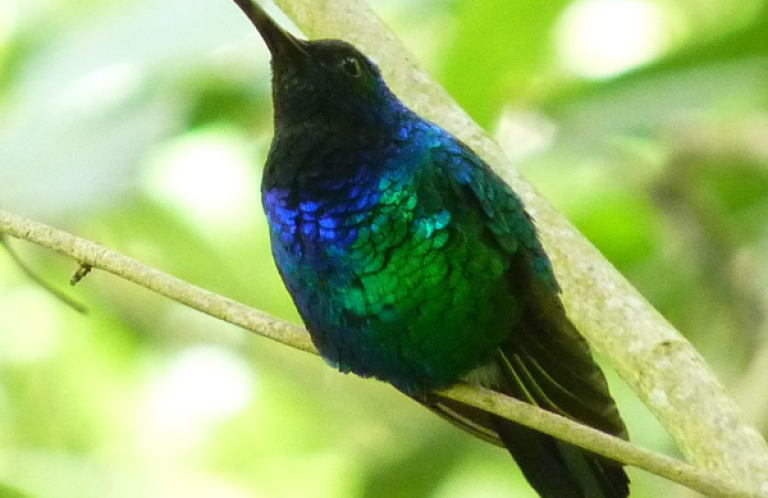Revised Eagle Rule Will Mean More Dead Eagles
 |
|---|
| Golden Eagle by Brian Murphy |
(Washington, D.C., August 9, 2013) American Bird Conservancy (ABC) has asserted that the revised eagle rule announced today by the U.S. Fish and Wildlife Service (FWS) is a dramatic setback in protecting Bald and Golden Eagles, two bird species that have inspired Americans for centuries.
“I can't imagine many things more important than protecting a bird so widely regarded as an iconic symbol of this country,” said Dr. George Fenwick, President of American Bird Conservancy. “Eagles permeate our culture, from their religious significance to American Indians to their status as the United States' symbol of freedom. This decision will spell the needless loss of a national treasure.”
At issue is FWS's decision to issue “eagle take permits” that remain in effect for as long as 30 years—six times longer than in previous rules. Previously, wind energy companies and other businesses could apply to FWS for a five-year permit that allowed them to unintentionally kill limited numbers of eagles as part of their normal operations if they also committed to a series of compensatory actions to offset this damage. A key part of these “programmatic incidental take permits,” granted under the Bald and Golden Eagle Protection Act and implemented through additional regulations, was that the permits had to be renewed every five years. This timeframe enabled the federal government to decline renewal of a permit if there was good reason not to. The public was also expected to be allowed to take part in the renewal process through a public comment period.
Along with issuing permits good for as long as 30 years and eliminating the five-year renewal process, FWS has also eliminated public oversight. The rule change was made without any environmental review process, in violation of the National Environmental Policy Act (NEPA).
“It wasn't that long ago that Bald Eagle numbers plummeted to just 800 breeding birds, placing them on the endangered species list and putting their very existence in doubt. Majestic Golden Eagles also suffered declines and continue to struggle today in the face of ongoing threats. This rule change will result in more of these iconic birds being killed,” said Fenwick.
A 2004 study prepared for the California Energy Commission estimates that about 95 eagles were being killed annually in one area alone—the wind facilities at Altamont Pass in California. That estimate suggests that over the 30-year operation of those facilities, perhaps as many as 3,000 Golden Eagles may have been killed, with no prosecution by federal officials.
“Eagles are being asked to survive a brutal one-two punch. On top of the impacts from the duration of take permits being extended six-fold, the birds will soon face an additional serious threat—a 12-fold increase in wind energy, if federal 2030 targets are achieved. So it is entirely conceivable, and probably even quite likely, that mortality impacts to eagles will get far worse,” Fenwick said.
The 30-year permit action was originally proposed in April 2012 and provided for a 90-day comment period. ABC and the Conservation Law Center sent joint comments opposing the proposal to FWS in July 2012. The National Park Service opposed the proposed action, along with nearly 120 conservation, wildlife, and animal protection groups including the Sierra Club, National Audubon Society, Defenders of Wildlife, National Resources Defense Council, and The Nature Conservancy. Native American groups such as the Hopi Tribe, the Nez Perce Tribe, the Intertribal Council of Arizona, and the Salt River Pima-Maricopa Indian Community have also expressed opposition to the change. In addition, thousands of concerned citizens responded to ABC action alerts on the proposal, writing to the Interior Department asking that 30-year eagle take permits not be allowed.


















































